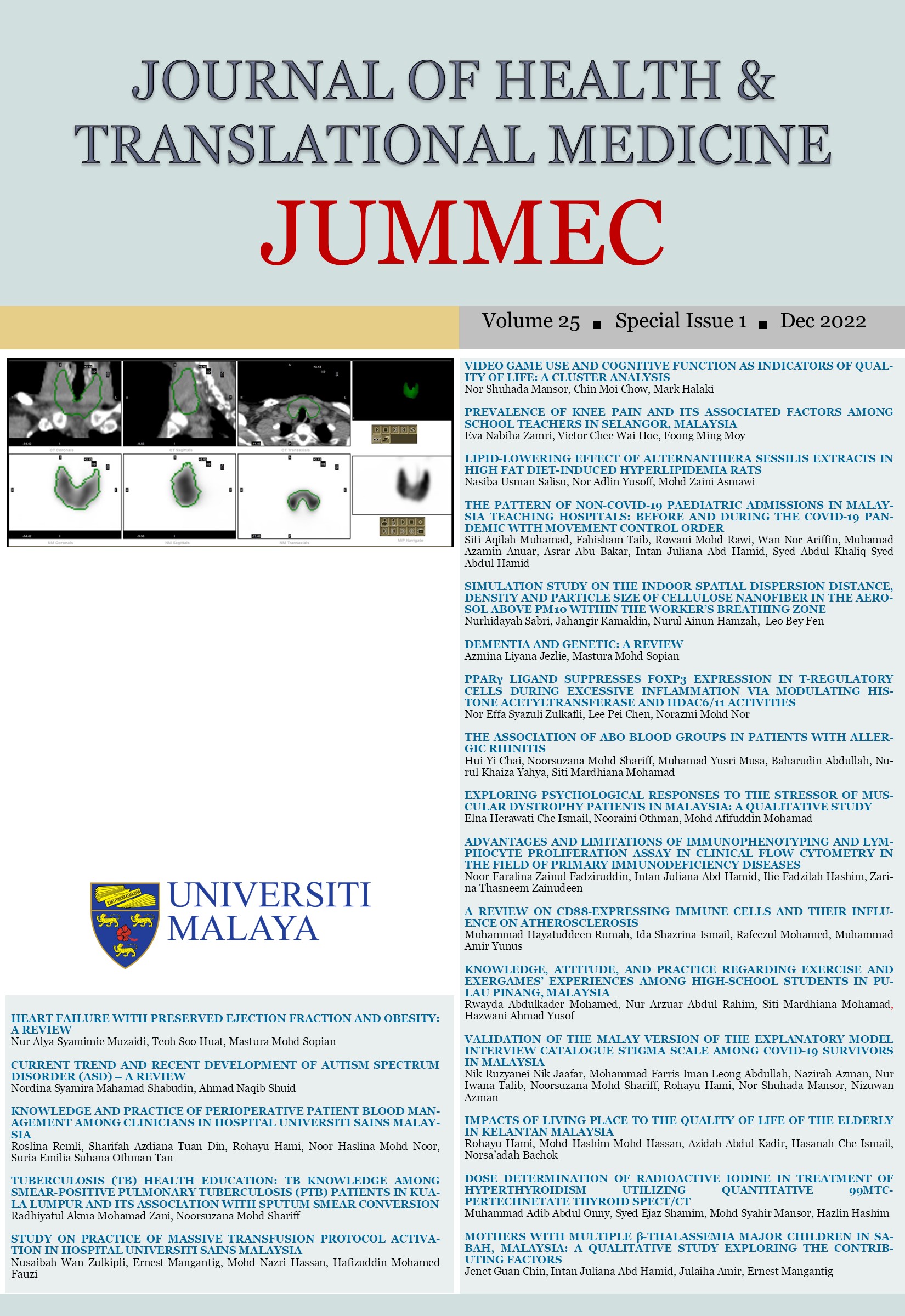A REVIEW ON CD88-EXPRESSING IMMUNE CELLS AND THEIR INFLUENCE ON ATHEROSCLEROSIS
Received 2021-07-23; Accepted 2021-09-29; Published 2022-12-31
DOI:
https://doi.org/10.22452/jummec.sp2022no1.11Abstract
CD88, which stands for "Cluster of Differentiation 88," is also known as C5aR, which stands for "Complement 5a receptor." This complement receptor has 7 transmembrane domains and is found on various cell types, including monocytes, macrophages, dendritic cells, epithelial cells, adipocytes, and endothelial cells. Atherosclerosis is a condition associated with chronic inflammation of the arterial walls. It's marked by lipid retention and building, monocyte and T lymphocyte recruitment into the intima, foam cell generation, smooth muscle cell proliferation, and collagen and protein accumulation. C5a has been found in a wide range of atherosclerotic lesions, from fatty streaks to advanced plaques. The expression of CD88 has been linked to both proatherogenic and antiatherogenic effects in atherosclerosis. Initial activities of C5a in atherosclerosis include chemotaxis, oxidative burst, and vascular adhesion molecule activation. CD88 expression has also been linked to the formation of atherosclerosis plaques via adaptive immune cell activation. Regulation and effector functions require ligand-receptor binding (C5a-C5aR) in the pathogenesis of atherosclerosis. CD88 expression has been linked to all stages of atherosclerosis. Myeloid cells have been identified to express CD88, which is responsible for many of C5a's biological properties. During atherogenesis, macrophages and dendritic cells are two important antigen presentation cells (APCs) that carry and display the CD88 surface marker. The proliferation and division of CD4+ T helper cells are controlled by macrophages, dendritic cells, and mast cells, which are also responsible for the release of both proatherogenic and antiatherogenic cytokines. However, there is no evidence that naive CD4+ T helper cells express CD88 from any of the research that has been done. Since CD88 is expressed by a wide variety of immune cells in atherosclerotic plaques, including macrophages, dendritic cells, T lymphocytes, and B lymphocytes, this review will focus on the influence of CD88 expressing immune cells in atherosclerosis formation.
Downloads
Downloads
Published
Issue
Section
License
All authors agree that the article, if editorially accepted for publication, shall be licensed under the Creative Commons Attribution License 4.0 to allow others to freely access, copy and use research provided the author is correctly attributed, unless otherwise stated. All articles are available online without charge or other barriers to access. However, anyone wishing to reproduce large quantities of an article (250+) should inform the publisher. Any opinion expressed in the articles are those of the authors and do not reflect that of the University of Malaya, 50603 Kuala Lumpur, Malaysia.


